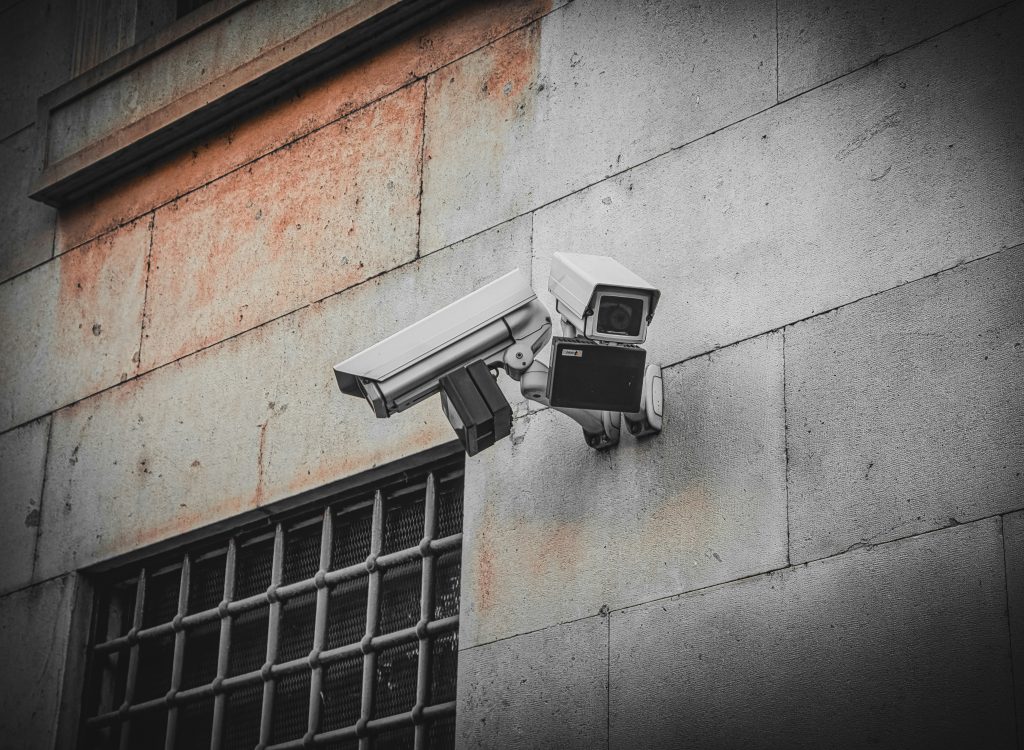Iran Stands Firm on Retaliation Plans Against Israel Amid Rising Tensions
In a significant escalation of rhetoric, Iran has firmly rejected calls from three European nations urging restraint in the face of heightened tensions following the assassination of Hamas leader Ismail Haniyeh. The Iranian government, led by Supreme Leader Ayatollah Ali Khamenei, has publicly vowed to retaliate against Israel, blaming the country for Haniyeh’s death in Tehran. This declaration has sparked fears of an imminent attack on Israeli territory.
The backdrop of this situation is fraught with complexity. The assassination of Haniyeh, a prominent figure within Hamas, has been perceived in Tehran as a direct affront, prompting a swift and aggressive response from Iranian leadership. Despite the calls from Western powers, including the United Kingdom, for Iran to exercise caution and avoid further escalation, the Iranian officials remain resolute in their stance. They have indicated that any retaliatory measures are imminent, with assessments suggesting that a strike could occur as early as this week.
The geopolitical implications of this potential conflict are profound. The United States has expressed concern over Iran’s intentions, cautioning that the situation could spiral out of control, further destabilizing an already volatile region. The assassinations, counterattacks, and subsequent threats highlight the precarious balance of power in the Middle East, where alliances and enmities shift rapidly.
Amidst these tensions, there are glimmers of hope for diplomatic negotiations. Reports suggest that discussions are underway regarding a potential hostage release and a ceasefire deal in Gaza, which could temporarily delay Iranian military actions. However, the effectiveness of these negotiations remains uncertain, as the Iranian leadership appears unwavering in its demand for retribution.
As the world watches this unfolding drama, the stakes are incredibly high. The possibility of direct military conflict between Iran and Israel could have catastrophic consequences, not only for the two nations involved but also for regional stability and global security. Analysts warn that any miscalculation could ignite a broader conflict that involves multiple countries in the region, exacerbating an already dire humanitarian situation in Gaza.
The Iranian response is emblematic of a broader cycle of violence that has characterized relations between Israel and its neighbors for decades. The dynamics of this conflict are further complicated by the presence of various militant groups, shifting alliances, and the interests of global powers in the region. As tensions escalate, it is crucial for international actors to engage in meaningful dialogue to prevent a resurgence of hostilities that could lead to devastating repercussions.
As this situation continues to evolve, the international community is urged to take proactive measures to de-escalate tensions. The stakes are higher than ever, and the potential for conflict looms large. With both sides preparing for potential military action, the question remains: will diplomacy prevail, or are we on the brink of a new chapter in the ongoing saga of Middle Eastern conflict? Only time will tell as the world holds its breath, waiting for the next move in this intricate geopolitical chess game.
Tags: Geopolitics, Hamas, Iran, Iran attack Israel Israeli, Iran attacks Israel, Israel, Retaliation
Rising Tensions: Iran’s Imminent Retaliation Against Israel Amidst Regional Unrest
As the geopolitical landscape in the Middle East becomes increasingly volatile, the specter of conflict looms larger following the assassination of Hamas leader Ismail Haniyeh. Iranian Supreme Leader Ayatollah Ali Khamenei, alongside senior military and political officials, has unequivocally stated that Iran will retaliate against Israel for its actions, escalating fears of a broader confrontation in the region.
Recent reports indicate that U.S. officials are closely monitoring the situation, interpreting military maneuvers in the vicinity as a clear signal directed at Iran. The U.S. stance reflects a growing concern over Iran’s potential military ambitions and its impact on regional stability. This heightened tension has drawn attention not only from Israel but also from international leaders who are now engaging in diplomatic efforts to calm the escalating crisis and advocate for a ceasefire.
The situation is further complicated by the ongoing internal strife within Israel’s leadership. Prime Minister and Defense Minister have publicly debated the objectives behind their military strategy in Gaza, with questions being raised about the feasibility of achieving a ‘total victory.’ This internal discord may embolden Iran, prompting a faster response as they gauge Israel’s resolve amid its leadership’s uncertainty.
In the midst of these developments, Hamas has claimed responsibility for the deaths of an Israeli hostage and injuries to two others, intensifying the urgency of the situation. The White House has issued warnings about the potential for an imminent Iranian attack against Israel, underscoring the precarious nature of the current standoff.
As the clock ticks, both Israel and Iran are poised for confrontation, with military preparations underway on both sides. Israeli Defense Minister Yoav Gallant has communicated to U.S. Defense Secretary Lloyd Austin that signs indicate Iran is gearing up for a large-scale assault, a claim that amplifies concerns among U.S. and allied forces in the region.
With international leaders rallying to mediate and reduce tensions, the possibility of a diplomatic resolution hangs in the balance. However, the recent actions and statements from both Iranian and Israeli officials suggest that both nations are preparing for the worst. The world watches closely as the potential for conflict in the Middle East escalates, raising critical questions about the future of peace and security in this volatile region. As the region stands on the brink, it remains to be seen whether diplomacy can prevail over the drums of war, or if the situation will spiral into a larger conflict that could engulf the entire region.
Tags: Iran attack Israel, Iran attack Israel Israeli, Iran-Israel Relations, Middle East
Iran Vows Retaliation: Rising Tensions with Israel as Assassination Sparks Threats of War
In a dramatic escalation of tensions in the Middle East, Iran has publicly vowed to retaliate against Israel following the assassination of Hamas leader Ismail Haniyeh in Tehran last week. This incident has sent shockwaves through the region, as both nations brace for potential conflict. Reports indicate that Iran is preparing for a significant response, which could involve coordinated attacks alongside Hezbollah, its ally in Lebanon. Israeli citizens are on high alert, anticipating possible strikes from Iranian forces. The situation is further complicated by the fact that Iran’s military capabilities have evolved since its last direct assault on Israel in April, when it launched nearly 350 drones and missiles in a failed attempt to breach Israeli defenses. Experts suggest that the current climate is markedly different, with Iran seemingly more emboldened and willing to leverage its military assets. As international observers watch closely, the dynamics between moderate Sunni states and their interest in countering Iran’s influence are also in play. While these nations may seek to weaken Iran, the possibility of forming a lasting coalition with Israel remains uncertain. The specter of war looms large over the region as diplomatic efforts struggle to keep pace with the rapidly escalating threats. The implications of such a conflict could extend beyond the immediate parties involved, potentially drawing in global powers and destabilizing the entire Middle East. As both sides prepare for what could be a pivotal moment in their ongoing hostilities, the world waits with bated breath for the next move in this high-stakes game of geopolitics.
Tags: Hamas, Hezbollah, Iran, Iran attack Israel Israeli, Israel, Middle East
Tensions Escalate as Iran and Israel Stand on the Brink of Conflict
In a week marked by escalating tensions in the Middle East, diplomatic efforts are intensifying to stave off a potential war between Iran and Israel. The United States has voiced its concern over the rising hostilities, urging G7 allies to apply diplomatic pressure to prevent further escalation. The situation is delicate, and the stakes are high as both nations prepare for possible military actions.
Israeli Prime Minister Benjamin Netanyahu has convened his security cabinet to discuss countermeasures in response to recent attacks, which have heightened fears of a broader conflict. Hamas and Iranian officials have placed the blame on Israel for the increased violence, suggesting that retaliation may be imminent. This week is critical, as the outcomes could significantly influence not only the war in Gaza but also the regional balance of power.
Iran has communicated its intentions to Israel through diplomatic channels, with Hungary’s Foreign Minister relaying a message that has raised alarms in Jerusalem. Observers are closely watching these developments, as they could lead to a significant shift in the dynamics of the ongoing conflict.
The geopolitical landscape is further complicated by the arrival of a high-ranking Russian delegation in Tehran, led by Sergei Shoigu, the Secretary of Russia’s National Security Council. This visit underscores the strategic interests of major powers in the region and highlights the need for careful diplomacy to avoid a full-blown conflict.
As both nations prepare for possible military actions, Israeli officials are ramping up their air defense capabilities and exploring first-strike options. The military readiness reflects the seriousness with which Israel views the threat from Iran, especially in the wake of recent provocations.
Global leaders are now faced with the challenge of navigating this complex situation. The United States has reiterated its commitment to limiting attacks and responses, advocating for a diplomatic solution to the escalating tensions. The urgency of the matter cannot be overstated, as the consequences of miscalculation could lead to widespread conflict in an already volatile region.
The international community is urging restraint and dialogue, recognizing that the potential for a regional war looms large. With lives at stake and the potential for widespread destruction, the call for diplomacy has never been more pressing. Observers remain hopeful that through concerted international efforts, a peaceful resolution can be achieved before it’s too late.
As tensions continue to rise, the world watches with bated breath, hoping for a de-escalation of hostilities and a return to diplomatic negotiations. The coming days and weeks will be crucial in determining the course of this conflict, with the potential to reshape the regional landscape for years to come.
Tags: Diplomatic Efforts, Iran attack Israel Israeli, Iran-Israel Tensions, Middle East Conflict, Military Readiness




